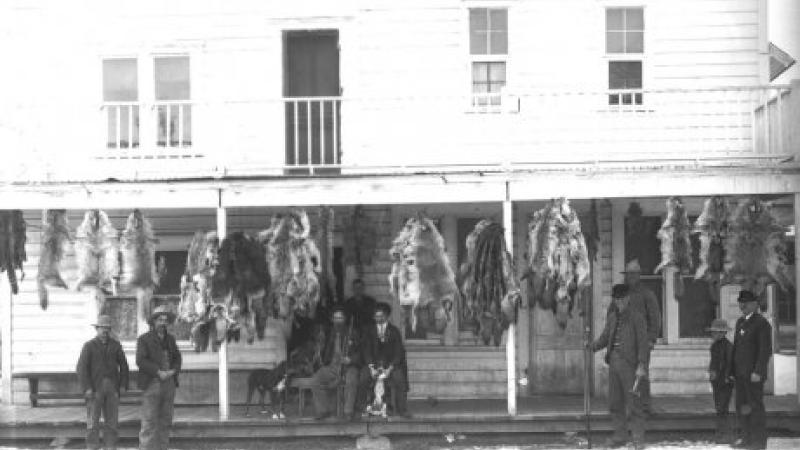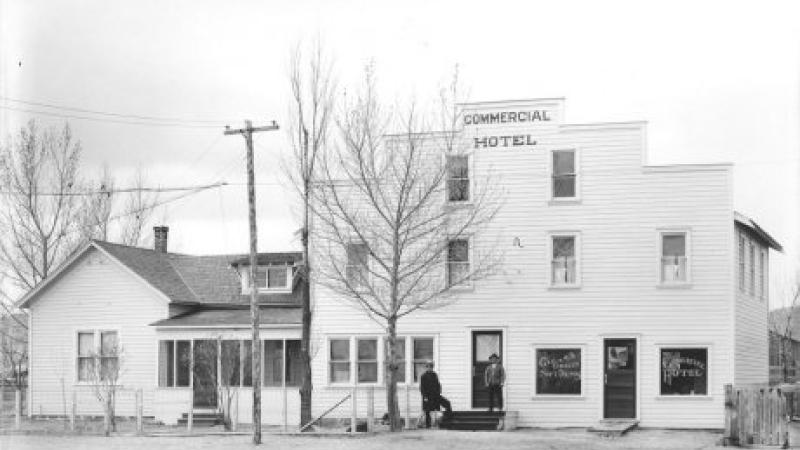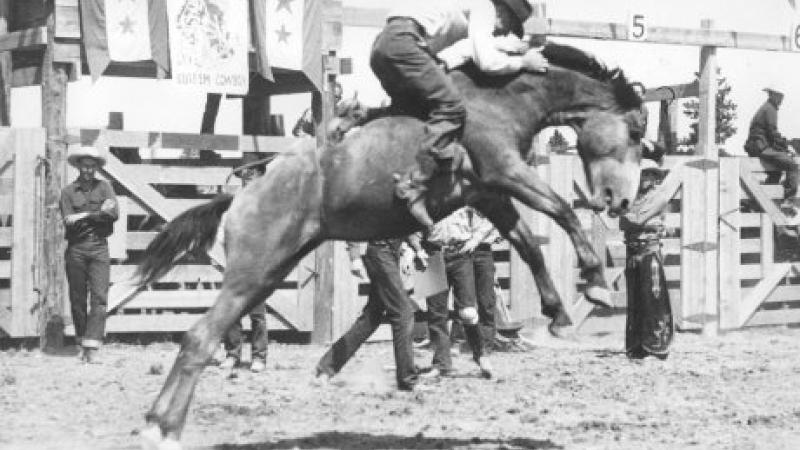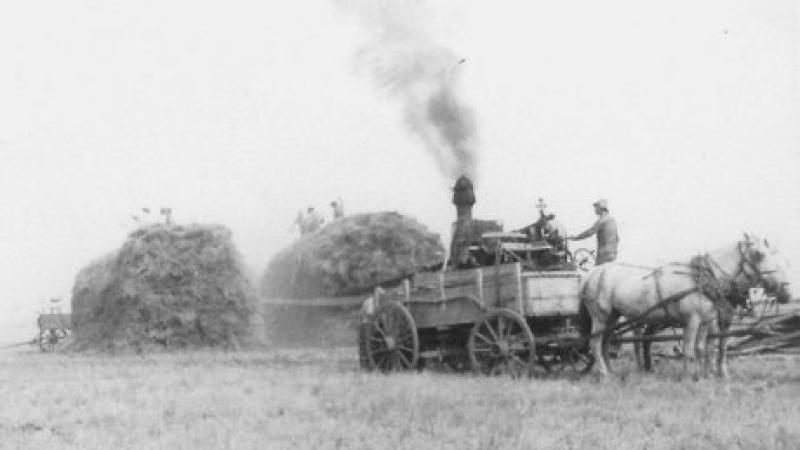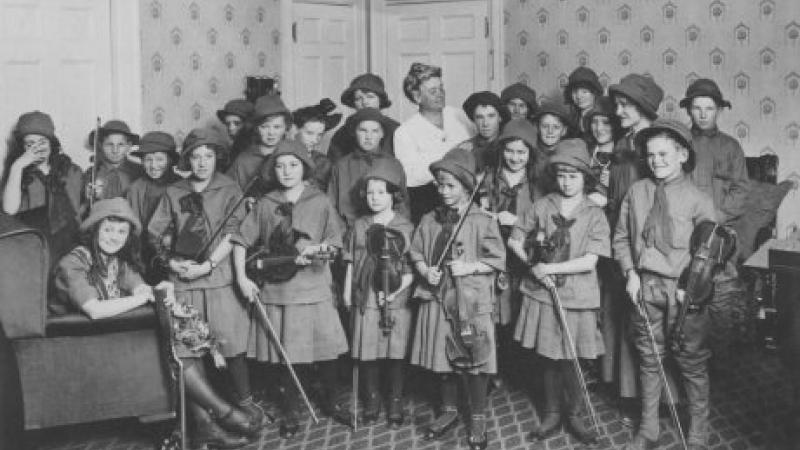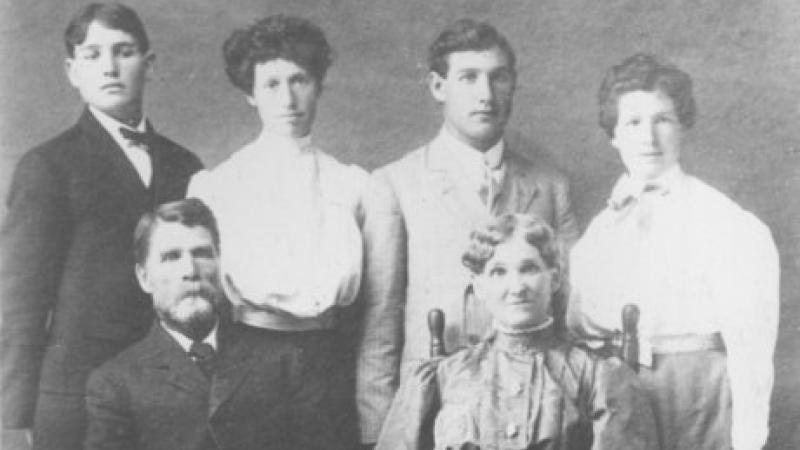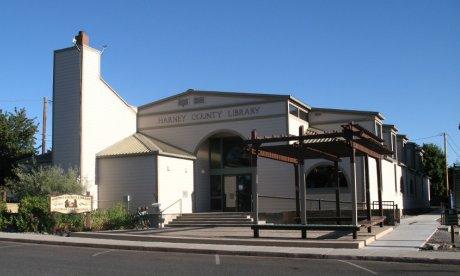50 States of Preservation: Harney County Library in Burns, OR
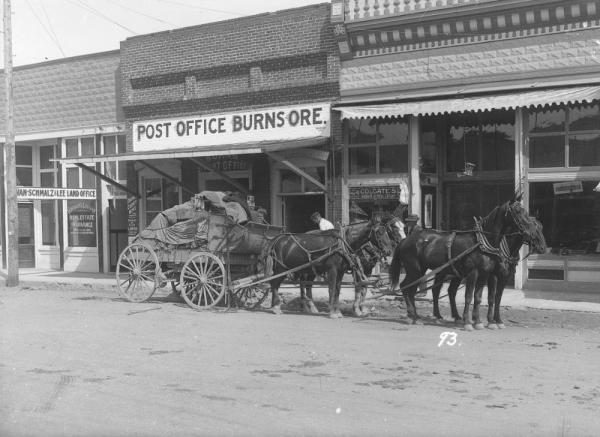
Burns, OR Post Office
Courtesy of the Harney County Library

Burns, OR Post Office
Courtesy of the Harney County Library
This feature is part of a series we call “50 States of Preservation,” in which we are touring small and mid-sized museums, libraries, historical societies, and other repositories across the country to show how they are helping to preserve the nation’s cultural heritage. Read other entries in the series here.
Situated in the town of Burns (population 2,800), the Harney County Library serves the residents of this remote and sparsely populated part of southeastern Oregon. White settlement in the region began with the establishment of Camp Harney in 1867 as a center for livestock raising. For many years thereafter, immense herds of cattle and sheep (many of the latter tended by Basque shepherds) defined life in Harney County. Beginning in the 1930s, the local timber industry got off the ground, and for the next 50 years it remained the lifeblood of the region.
The Harney County Library was established in 1966. It includes a public reading/research room, a closed stacks storage room, and a state-of-the art audio recording room. The library is best known for its extensive collection of regional and local history materials housed in the Claire McGill Luce Western History Room. The wife of Time magazine publisher Henry Luce III, Claire McGill Luce was a native of Harney County. Her generous bequest to the library was instrumental in the formation of the Western History Room. Many of its holdings were donated by local citizens. They include thousands of books, photographs, newspapers, and audiovisual materials related to the history of Harney County and the Oregon frontier. Historians, genealogists, school groups, and the general public--including members of the local Paiute tribe--all make use of the collection.
To ensure its long-term survival, the staff of the library sought the advice of outside experts on how best to preserve the Western History collection and to anticipate dangers to these materials posed by fire, floods, or other disasters. Through an NEH grant, Harney County Library secured the services of librarian Karen West and paper conservator Janet Ruggles, both of the Balboa Art Conservation Center in San Diego. In 2011, the two consultants traveled to Harney County to carry out a general survey of the Western History collection, a vulnerability assessment of the library, and a one-day workshop for its staff on developing an institutional plan for emergency preparedness and response. The grant also enabled the library to purchase a cache of emergency supplies to be used in the event of a natural disaster.
The consultants’ report covered a wide range of topics related to the library’s collections including climate control, lighting, pest control, exhibitions, collection policies, and storage. Special attention was given to disaster prevention and the creation of a disaster plan for the entire library. According to Director, Cheryl Hancock, the grant-funded workshop helped the library to plan for the long-term health of its collections. The NEH project, she said, “gave us the tools to plan responses to the various threats the library could experience and the resources necessary to plan for those possibilities.”
In every state, NEH supports organizations that preserve humanities collections. Preservation Assistance Grants for Smaller Institutions (PAGs) fund projects that help safeguard photographs, letters, documents, prints, moving images, sound recordings, maps, drawings, artworks, textiles, furniture, and artifacts, making them available for future generations. These collections help researchers, educators, and members of the public better understand the complex stories of the various cities, towns, and tribal groups that make up our nation.
Since 2000, NEH has made nearly 2,000 Preservation Assistance Grants to small and mid-sized organizations to preserve and care for their humanities collections. In all 50 states, the District of Columbia, and Puerto Rico and the Virgin Islands, PAG awards have funded preservation assessments, purchase of shelving, environmental monitoring equipment, and preservation supplies, and training for staff. Organizations in all states and U.S. territories are eligible to apply, and the program encourages applications from those new to NEH. The next application deadline Preservation Assistance Grants for Smaller Institutions is May 1, 2018. If you have any questions about this grant program, please contact us at @email or 202-606-8570.
